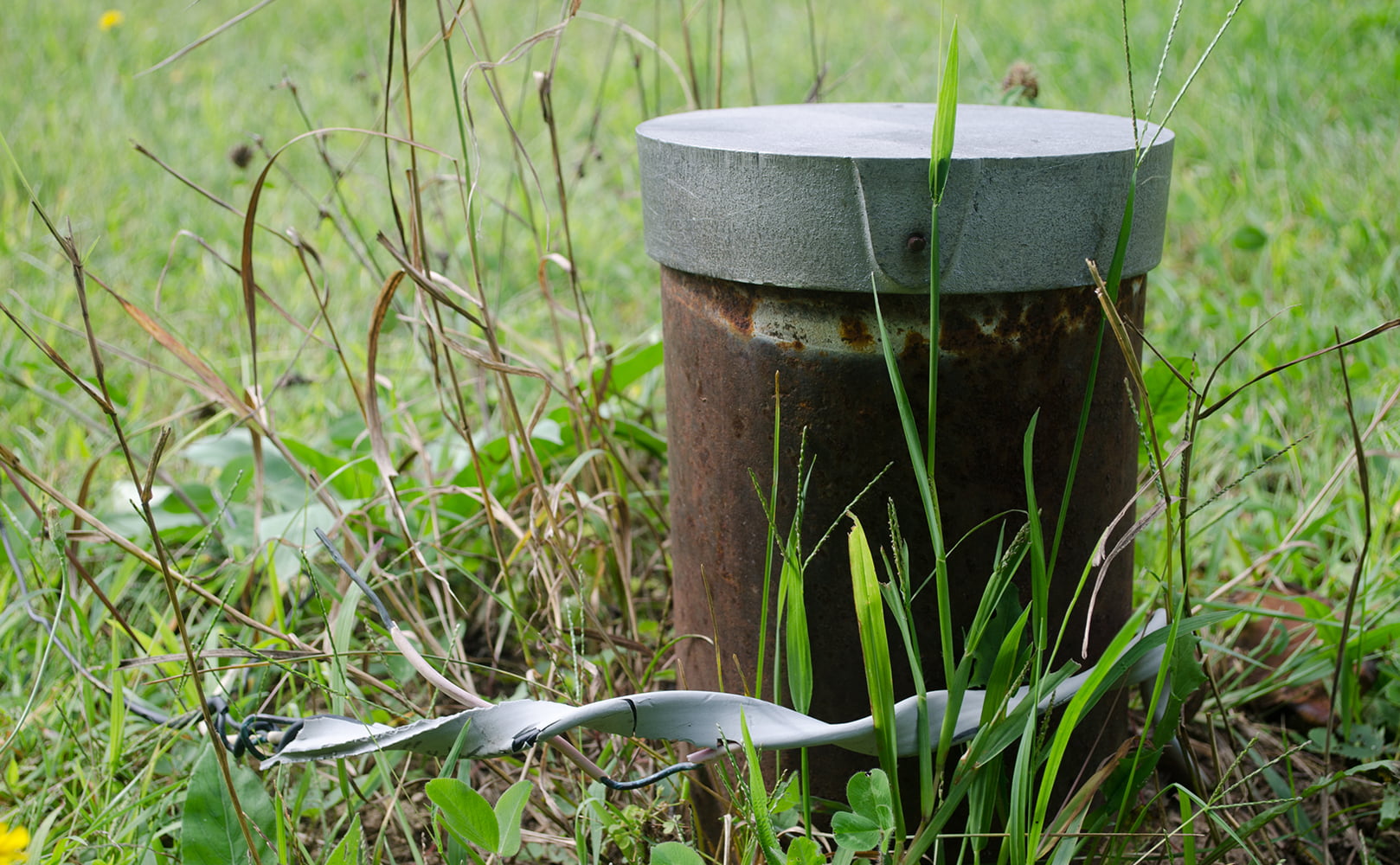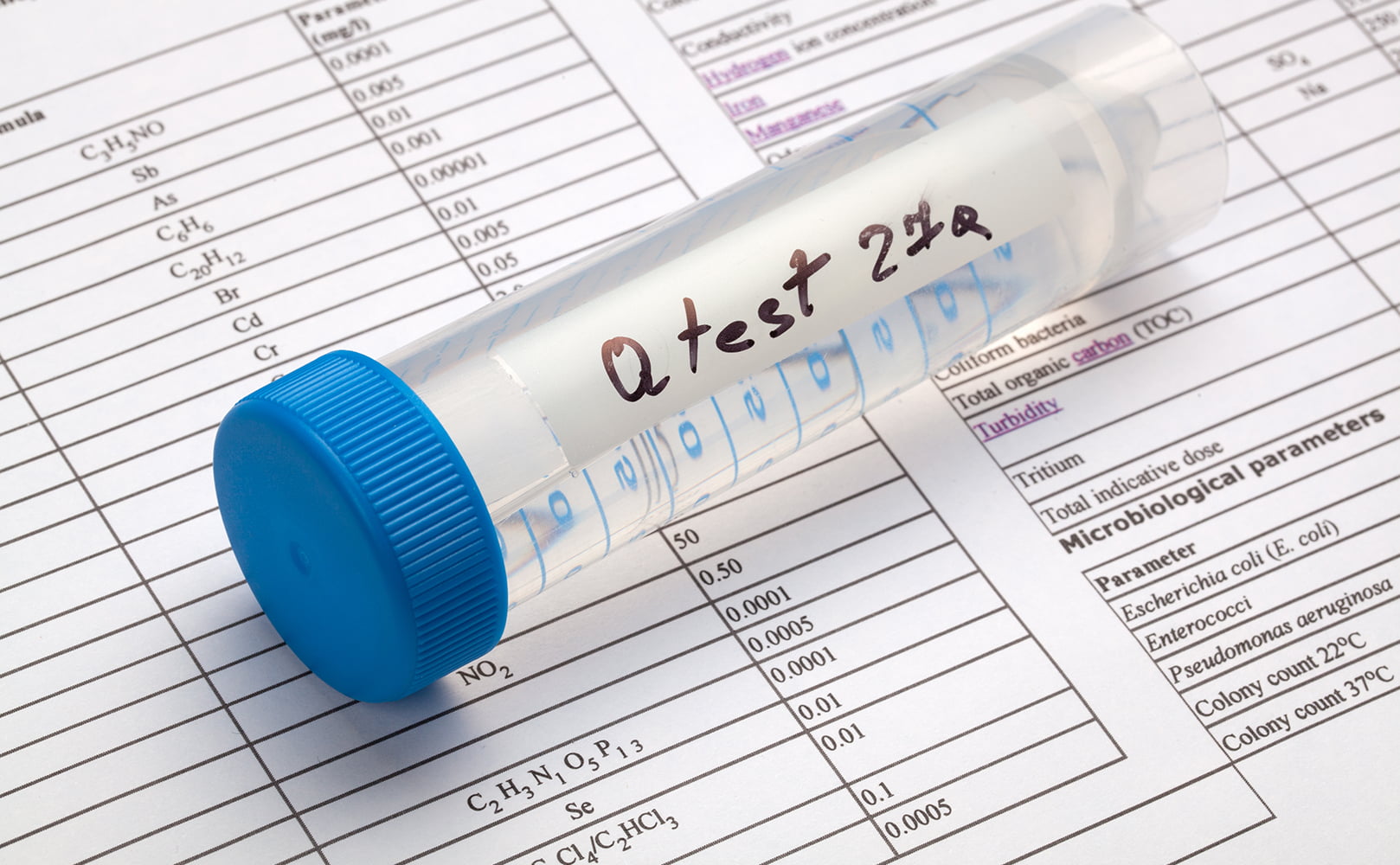Do I Need to Filter My Well Water?
Written by: Gene Fitzgerald // Last Updated: Jul 18, 2023
This page may contain affiliate links. If you buy a product or service through such a link we earn a commission at no extra cost to you. Learn more.
If you use a private well, you must’ve heard that well water filters can improve your water’s quality. But then, well water filters are expensive, and no one wants to spend a lot of cash on a filtration system unless it’s absolutely necessary.
So, how do you know if you need to filter your well water? That’s where this article comes in!
In this guide, we’ll show you how to decide if you need to filter your well water and how to pick the right well water filter if you need one.
Key Takeaways
- In most cases, you will need to filter your well water as it does not benefit from any public water treatment processes.
- Additionally, well water is highly prone to various contaminants types such as sediment, heavy metals, and pathogens. Other common issues include bad taste, smell, and discoloration.
- All these issues can be solved by installing an appropriate well water filter system.
Does Well Water Need to Be Filtered?
In almost all cases, well water needs to be filtered.
For one thing, it does not benefit from any public water disinfection processes, so well water is prone to many water contaminants.
The only time you don’t have to filter well water is when it does not contain any contaminants, but that rarely happens.
What Is Well Water?
Well water comes from porous rocks beneath the ground, called aquifers. To access well water, a well-digger digs a well until it reaches the water level below, and a pump is installed to suck out the water.
Sediments, Heavy Metals, Pathogens — Well Water Is Prone to Contamination
Well water is highly prone to contamination. For example, after heavy snowmelt or rainfall, pathogens can easily get washed into well water and can cause gastrointestinal diseases to whoever drinks it.
Heavy metals like lead and arsenic can also leach into well water as it flows underground or get into well water through plumbing pipes. When you drink without filtering, these metals in well water can cause serious health issues like liver and kidney damage.
There’s also the risk of sediment contamination with well water; sediments in well water can damage your water-using appliances or even clog your plumbing pipes – not to speak of the aesthetic effects.
Bad Taste and Smell (+ Discoloration)
Besides causing health issues or damage to your home, well water contaminants can also ruin your water’s taste or smell. So even if you do not face any health issues from unfiltered well water, you may not enjoy drinking the water because of its bad odor and taste.
In addition, some well water contaminants can also cause stains on your bathtubs, kitchen sinks, and other fixtures.
More Common Well Water Issues
Many well owners complain of problems like water hardness. Hardness-causing minerals like calcium and magnesium can easily leach into well water underground, leading to hardness.
Hard water is difficult to use and also leaves stains everywhere around the house.
Another problem with wells is acidity. Acid rain can lower your well water’s pH, making your well water acidic. Acidity encourages metals like copper and lead to leach into your water.
How Do You Know If You Need a Filter for Your Well Water?
To know if your well water needs filtering, here are a few things you can do:
Ask Your Neighbors or a Local Water Treatment Expert
If your neighbors own wells, you can ask them if the water in your area is fine without filtering or if they use well water filters.
To get reliable answers, you should target neighbors who have stayed in your locale for a long time. Although there are chances that your well water differs in quality from your neighbors’, talking to them can give you a good idea of what to expect from your own well.
If there’s a water treatment expert who has worked in your area for long enough, you may also talk to them to find out details about your local water quality.
Well Environment
If a lot of farming, oil drilling, or factory activity goes on in your environment, there’s a higher chance that you need a well water filter. These activities can expose your well water to dangerous chemicals, metals, and radioactive materials.
Also, if you’ve dug your well close to a septic tank, your well water will be highly prone to bacterial contamination. In this case, you need to get a proper well water filter as soon as possible.
Well Depth
Shallow wells (less than 90 ft) are easily polluted by excess surface water – think heavy rainfall.
If your well is deeper than 90 ft, it’s relatively safe from pollution by surface runoff. But if it isn’t, you should consider getting a well water filter.
Flooding and Droughts
If your area is prone to flooding and droughts, that’s more reason to consider a well water filter.
- Drought lowers the water level in your well, and this increases the level of microorganisms and sediments.
- Flooding also washes unwanted particles into your well water.
If either condition is common in your area, you need a well water filter to keep your water supply safe.
The Safest Way to Know If You Should Filter Your Well Water Is Through Testing
The suggestions we mentioned above can give you an idea of your well water quality, but a water test is the surest way to know. You can test your well water using:
DIY Well Water Test Kits
These are small kits that can help you detect specific contaminants in your well water. They are easy to use and help you test your water without taking a sample in your home and shipping it to a laboratory.
However, not all DIY well water test kits are 100% reliable.
Professional Lab Test
You can test your water sample at a state-certified laboratory near you. The test will reveal the exact amount of contaminants in your well water.
How Often to Test
The CDC recommends testing your well water once every year.
Choosing the Right Well Water Filtration System
After deciding that your well water needs filtering, you need to decide which filtration system to use. Here are some of your options:
Whole House vs. Point of Use
A whole house well water filter system is best if you want to filter the water in your entire home. Whole house systems are installed near the main water entry valve, and they filter your well water before it enters your home, meaning you’ll get filtered water at every faucet.
Point of use filters filter water at specific outlets (taps, showers) within the home. You can choose point of use systems if you only want to filter water at a specific point (like your kitchen faucet). Point of use systems are easier to install than whole house filter systems.
Sediment Well Water Filters
Sediment well water filters remove large particles from well water. A sediment filter is a great choice if you find visible particles in your well or notice your water is cloudy or discolored.
In addition, you can use a sediment filter as a pre-filter in whole house water systems.
Iron Filters
Iron filters are designed to remove excess iron from water. They are a good choice if your well water tastes or looks rusty and leaves red stains on surfaces.
Carbon Filters
Carbon filters use activated carbon to adsorb contaminants. They effectively remove chemicals like pesticides and volatile organic compounds (VOCs) but also heavy metals such as lead from water.
You should use a carbon filter if your well is located close to a farm or factory.
UV Water Purifiers
This type uses UV rays to purify water. It is effective at removing microorganisms from well water.
Water Softeners
You only need this if your well water is hard. Water softeners exchange hardness-causing minerals in water with harmless sodium ions, making your water soft.
Well Water Disinfection Through Shock Chlorination
If your well water contains microorganisms, you need to disinfect it. Shock chlorination is an effective disinfection method. It is done by pouring chlorine (usually household bleach) into your well to neutralize microorganisms.
The Benefits of Well Water
With well water, you get to enjoy these benefits:
- Save cost: Well water is an economical source of water. Apart from the initial cost of installation and periodic maintenance, you don’t have to pay for water subsequently.
- Long-term use: Wells can last for many years and even serve future occupants of your home.
- Safe water: As long as you filter out dangerous contaminants, well water is safe and healthy for use.
- Great water taste: Well water tends to taste great because of the natural minerals it contains.
Is Well Water Dangerous or Safe?
Well water is a safe water source. However, it usually gets contaminated with microorganisms and chemicals through underground seepage or surface runoff.
Because of this, it is usually necessary to filter well water. As long as you take appropriate measures to filter your well water, it is safe and healthy to use.
If you have any thoughts about the question, does well water need to be filtered, please don’t hesitate to leave a comment below!
Information provided on BOS is for educational purposes only. The products and services we review may not be right for your individual circumstances.
We adhere to strict editorial guidelines. Rest assured, the opinions expressed have not been provided, reviewed, or otherwise endorsed by our partners – they are unbiased, independent, and the author’s alone. Our licensed experts fact-check all content for accuracy. It is accurate as of the date posted and to the best of our knowledge.



